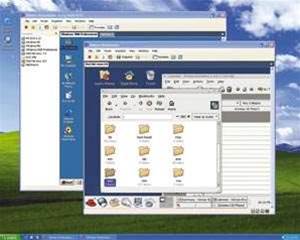
Today's operating systems cater to a wide variety of applications and use cases, which ahs lead to an explosion of the size of both Linux and Windows. This in turn makes it hard to maintain the code, increasing the overall number of bugs as well as the chance of security vulnerabilities remaining undetected.
Developers furthermore have to optimize their applications for multiple operating systems, which requires time and money.
Instead, Rosenblum recommended, developers should consider creating a custom operating system.
"Rather than making your application run on a bunch of different operating systems, you choose one operating system. You bundle it together and you ship this thing around as a virtual appliance," Rosenblum said.
Linux is the ideal candidate to run these virtual appliances because the operating system is free and open source.
An application specific operating system doesn't just cut back on the potential number of bugs and security flaws. Developers can also add features that for instance increase the software's performance.
Several companies are currently selling virtual appliances. Database vendor Ingress for instance is shipping a virtual appliance based on a specialized Linux distribution that is maintained by rPath.
Middleware maker BEA in June started shipping its WebLogic Server Virtual Edition, that allows users to quickly add compute power to Java applications that are part of a Service Oriented Architecture.
The jury on virtual appliances however is still out, because each customized Linux version is essentially a fork.
Red Hat for instance in May started shipping what it referred to as a database appliance running the Sybase database. The partnership however was a straightforward software bundling agreement and didn't involve a customized version of Red Hat Linux optimized for the database.
"We won't compromise the reason that people go to open source and Linux in the first place, which is to have a platform that is well tested and developed by the community," Scott Crenshaw, Red Hat's Red Hat's vice president for Enterprise Linux said at the time.
"There are Lines that have to be drawn to optimize the security and quality. You can expect a great degree of customization to be available but not the creation of a Linux fork."
Rosenblum however expects that there will be a degree of standardization around software appliances that prevents an explosion of Linux distributions for which developers have to develop patches and updates and that requires hardware certification.
In addition to specialized companies such as rPath, existing Linux vendors could also create customizable versions of their distributions that can be tweaked for certain applications, VMWare suggested.


_(20).jpg&h=140&w=231&c=1&s=0)







 iTnews Executive Retreat - Security Leaders Edition
iTnews Executive Retreat - Security Leaders Edition
 Huntress + Eftsure Virtual Event -Fighting A New Frontier of Cyber-Fraud: How Leaders Can Work Together
Huntress + Eftsure Virtual Event -Fighting A New Frontier of Cyber-Fraud: How Leaders Can Work Together
 iTnews Cloud Covered Breakfast Summit
iTnews Cloud Covered Breakfast Summit
 Melbourne Cloud & Datacenter Convention 2026
Melbourne Cloud & Datacenter Convention 2026
 The 2026 iAwards
The 2026 iAwards












_(1).jpg&h=140&w=231&c=1&s=0)



